[Atari, Avalon Hill]
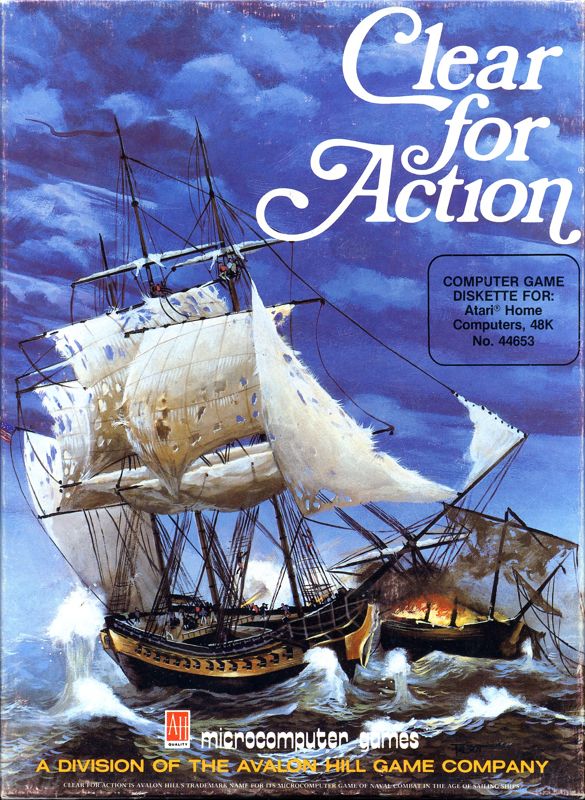
For the last 20 years, I have tried to find the game that would reignite the feelings I had when I played Ancient Art of War at Sea back in the early 90s. Alas, everything I played was either too slow or too fast, too arcade or too micro, not tactical enough or too strategical. Eventually, I made peace with the fact that my recollections of War at Sea were coloured in the pink of nostalgia, but still today I feel a bit fuzzy inside whenever I find a new Age of Sails game.
Clear for Action covers 30 years of naval warfare in the 18th century and early 19th century, starting with the duel between the British Nymphe and the French Cléopâtre in June 1783, and ending with the one between the British Shannon and the American Chesapeake in June 1813. This is exactly the same time period as SSI’s Broadsides, in which I played the Insurgente and was defeated by the USS Constellation – and this battle is also available in Clear for Action, so I am going to do a rematch!
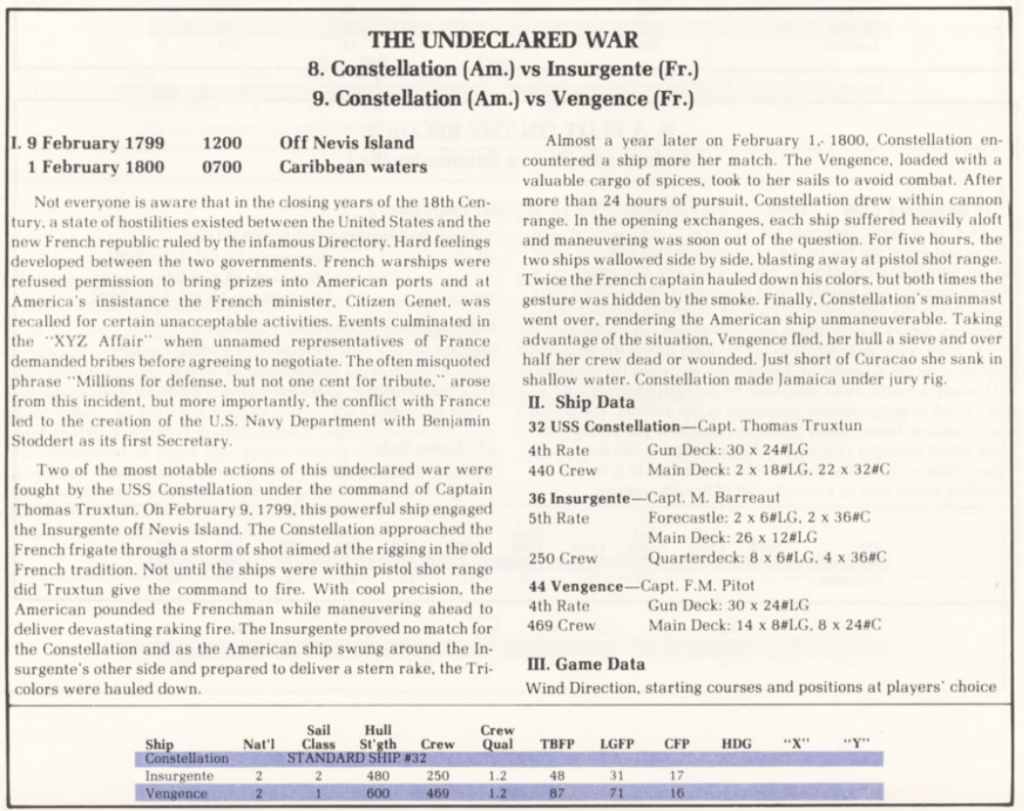
Wait! Wait! Wait! In Broadsides, the Insurgente had a crew of 420 and as many guns as the Constellation, but in Clear for Action she has a crew of 250 and 25% fewer guns than her opponent? Share your sources, people! I am unlikely to avenge much with such a ship, so I will command the (hopefully) appropriately named Vengeance instead.
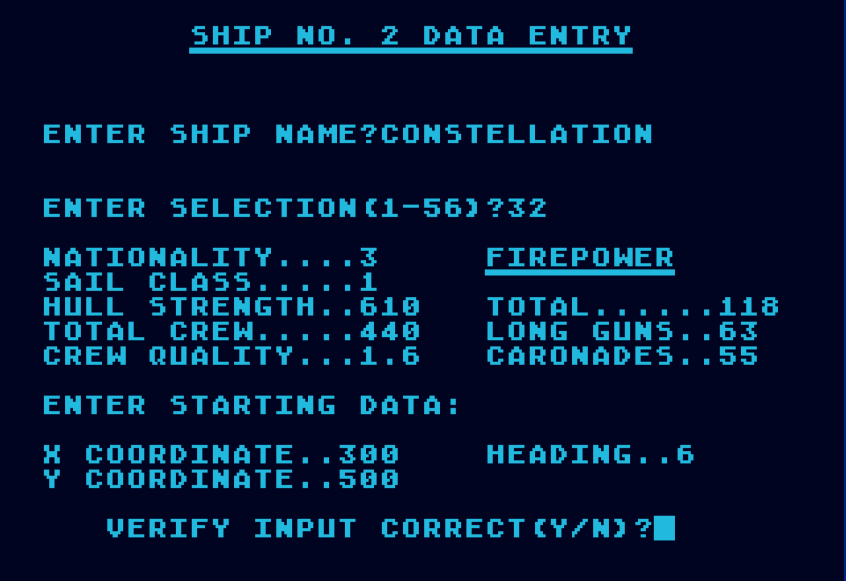
Both ships start at slow speed and sailing West. The wind is blowing from the North.
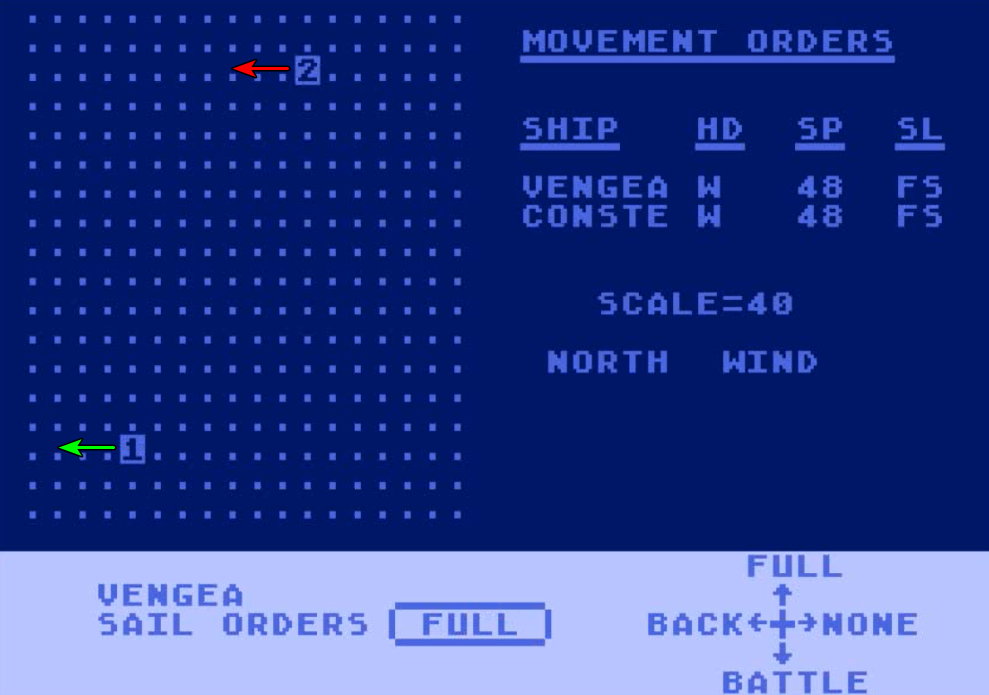
The Constellation and the Vengeance have roughly the same number of long-range guns, but the Constellation has the better crew and a stronger hull, so I am not going to win a long-range duel. Furthermore, the Constellation is devastating at short range, so approaching her is not an option either. Finally, I am not going to outmanoeuvre the American ship, as all ships in Clear for Action turn at a fixed rate: 45° every turn.
I have one glimmer of hope however: ships in Clear for Action cannot face the wind, except for one turn as part of tacking (“the manoeuvre by which a sailing craft turns its bow toward and through the wind so that the direction from which the wind blows changes from one side of the boat to the other“). Therefore, my plan is to come to the Constellation from the North and pass it on the side, using this rule to prevent her from showing me her broadsides.
If this was Broadsides, I would turn my ship gently to port to increase my distance without passing in front of the Constellation. Unfortunately, it is Clear for Action, so I can only turn by exactly 45°, and I have to withstand the Constellation‘s fire:
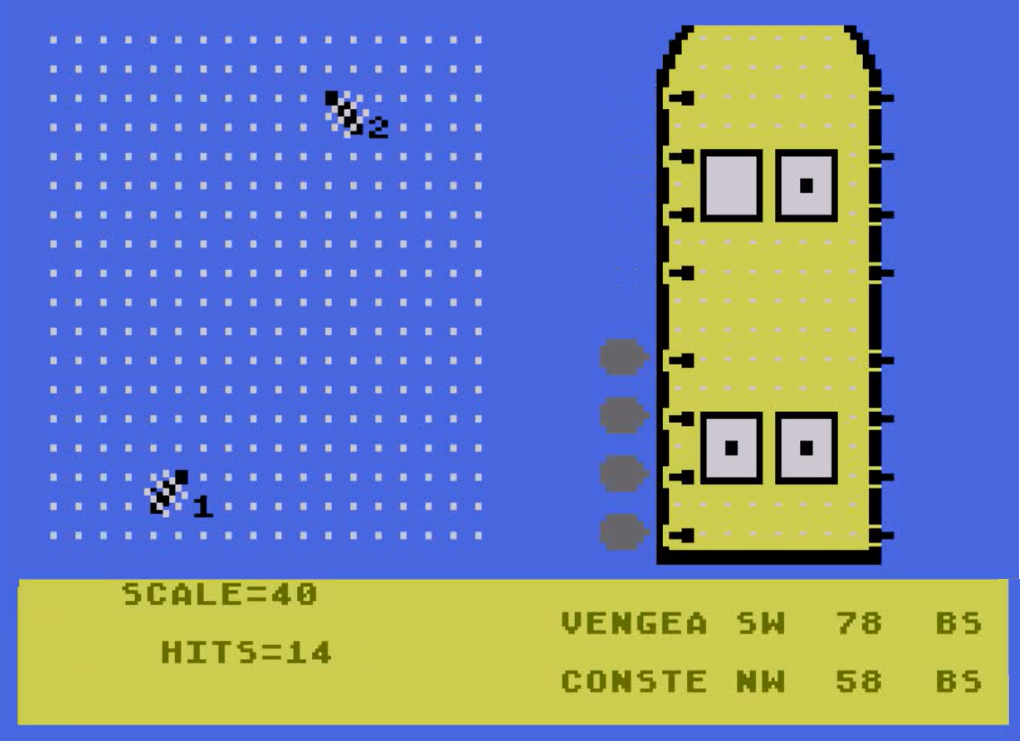
The Constellation has only one good turn of shooting – after that the distance is too large for her to cause much damage.
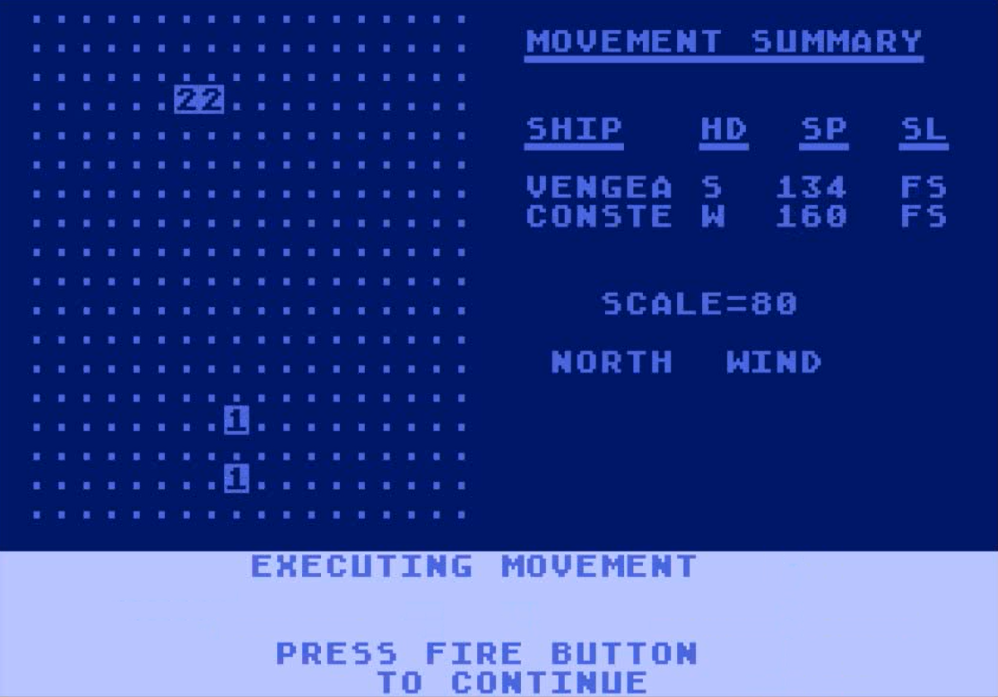
After some time, I come back from the North-East, as per the plan:
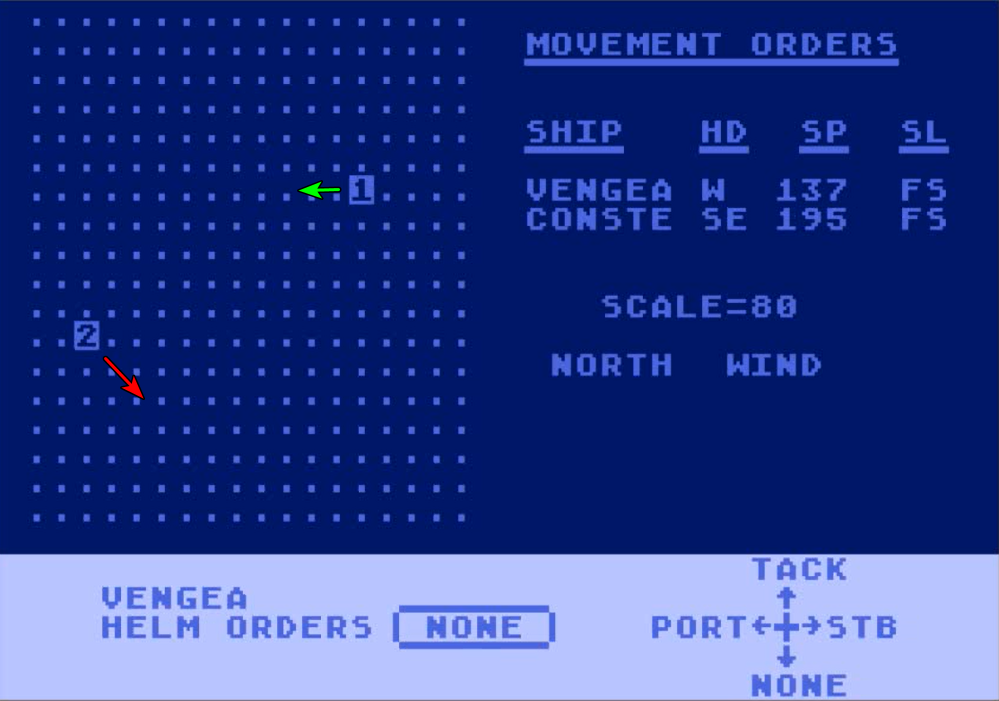
I have received some damage, particularly to the hull, but limited crew and gun losses, so this is going to be the decisive moment:
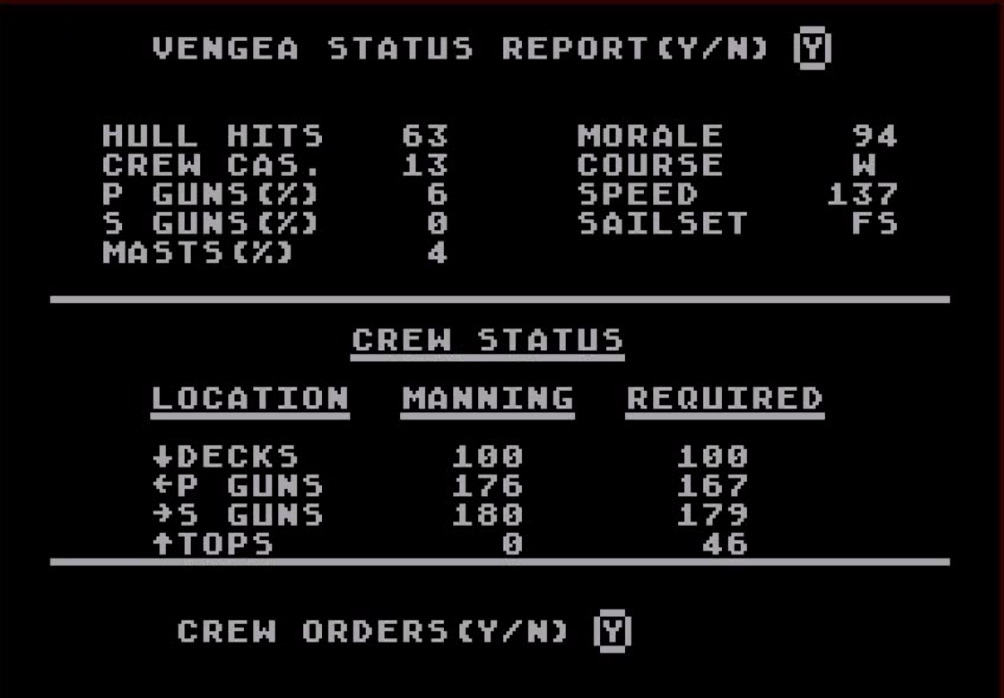
The battle starts for real when both ships rack each other at close range. I am a bit closer than expected (<500m) so the Constellation‘s carronade can also be fired…
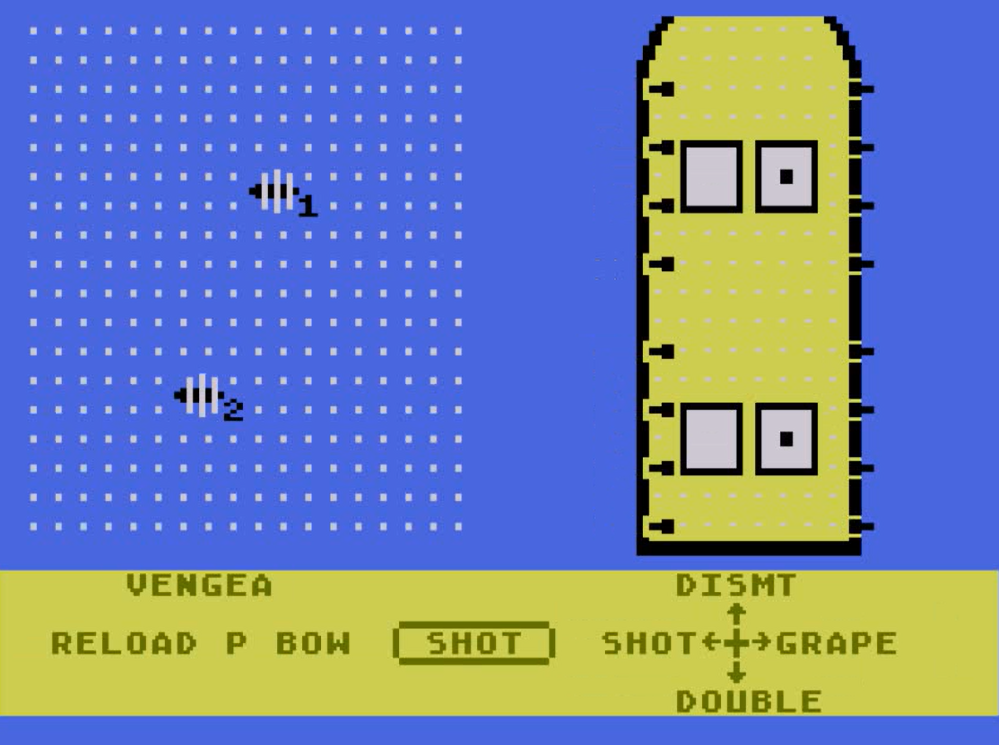
… but while the Constellation is tacking, I manage to have a turn of unanswered salvo!
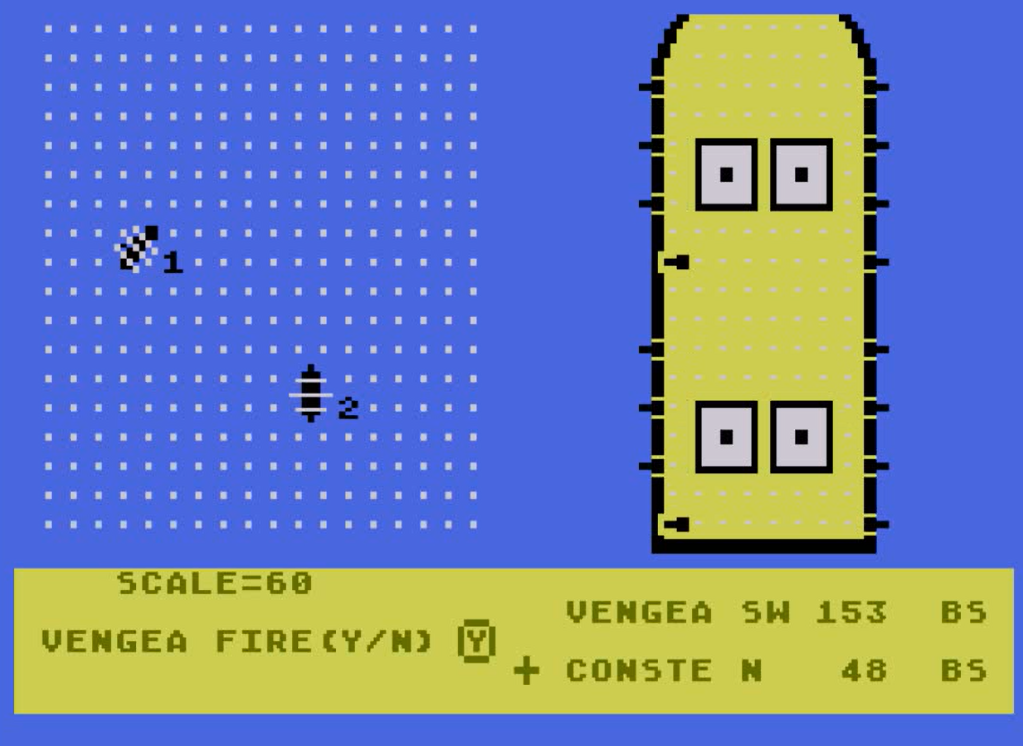
I am now due East, and the Constellation cannot point to the North due to the wind – it gives me another free salvo. Alas, I can’t stop and pummel her from where I stand – to slow down quickly I would need to back my sails (“heave to”), but I can’t with the wind behind me, so I continue South into the danger zone!
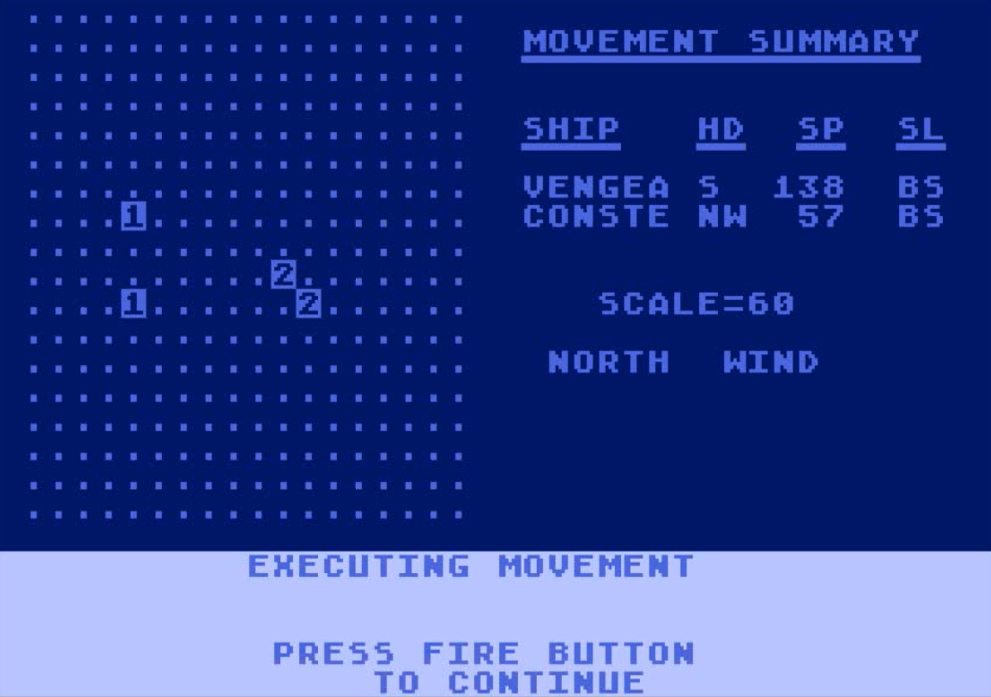
I am proud of my little manoeuvre with the wind, but it was not decisive. Worse, I miscalculated, and now I am at fewer than 400m of the Constellation, a range at which the carronades start to be really effective!
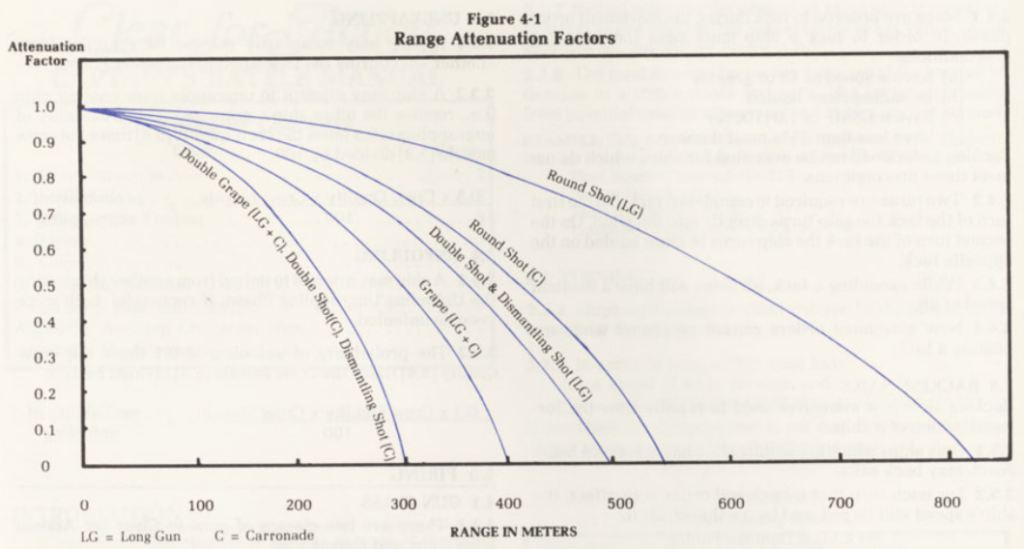
The Constellation is almost stopped, so she acts as a turret that sends lead in my direction every turn. I never managed to really have an advantage in damage, but now I am lagging behind.
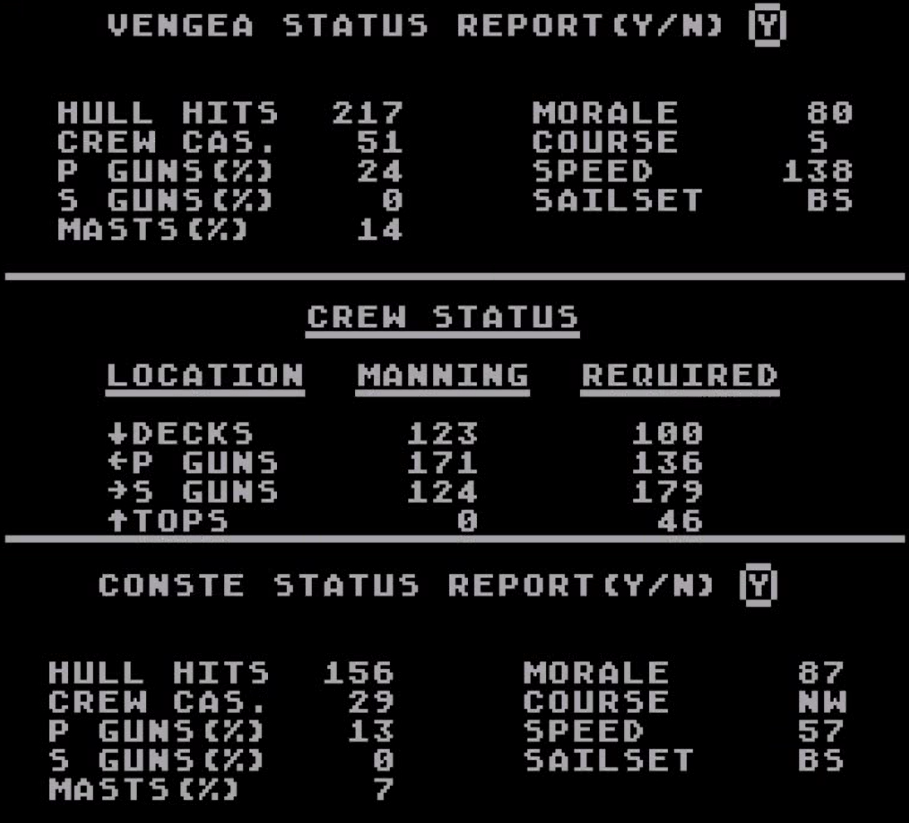
I can’t escape now, so I try a Salut-Marie action and head straight for the Constellation, grappling her!
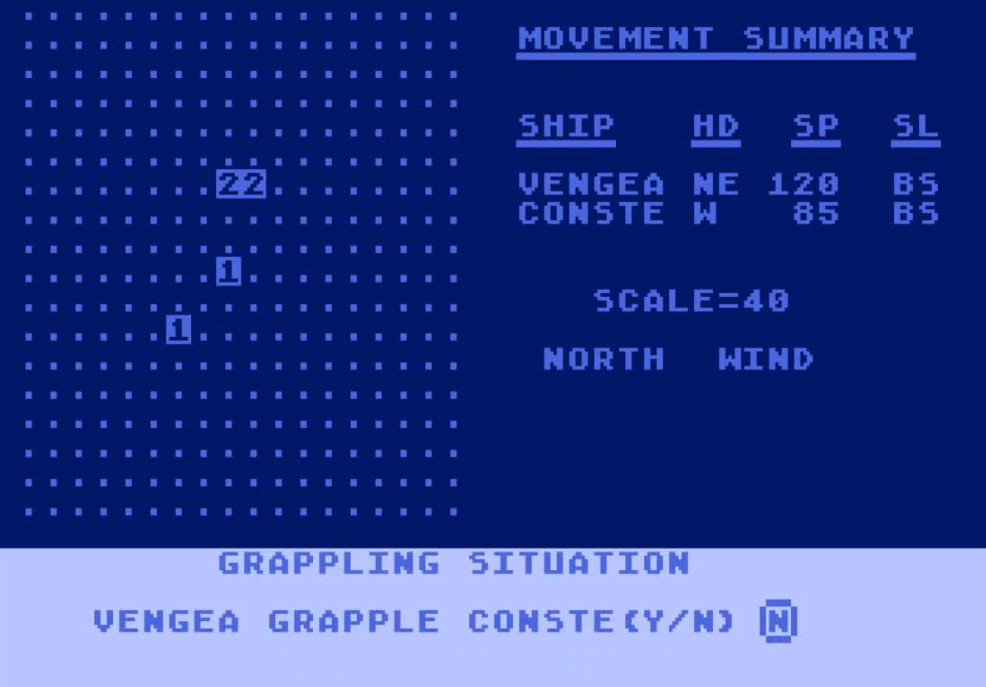
Unfortunately, I grapple it at the worst possible place: right in front of its broadsides, loaded with a mix of round and grape shots:
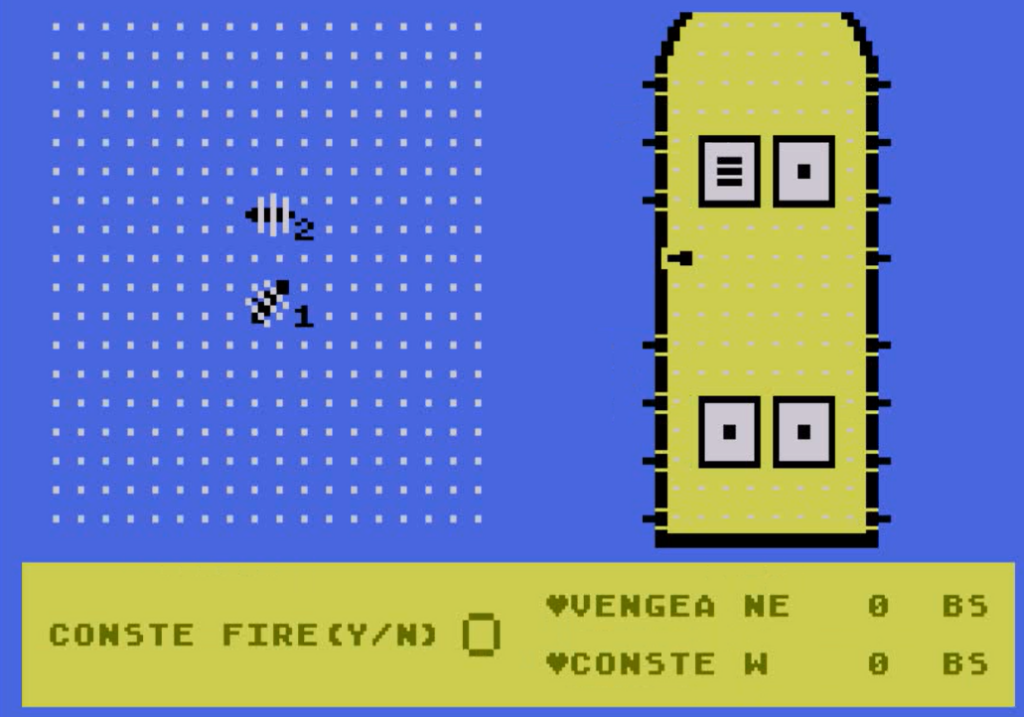
With my deck cleared by the American guns, I am the one being boarded!
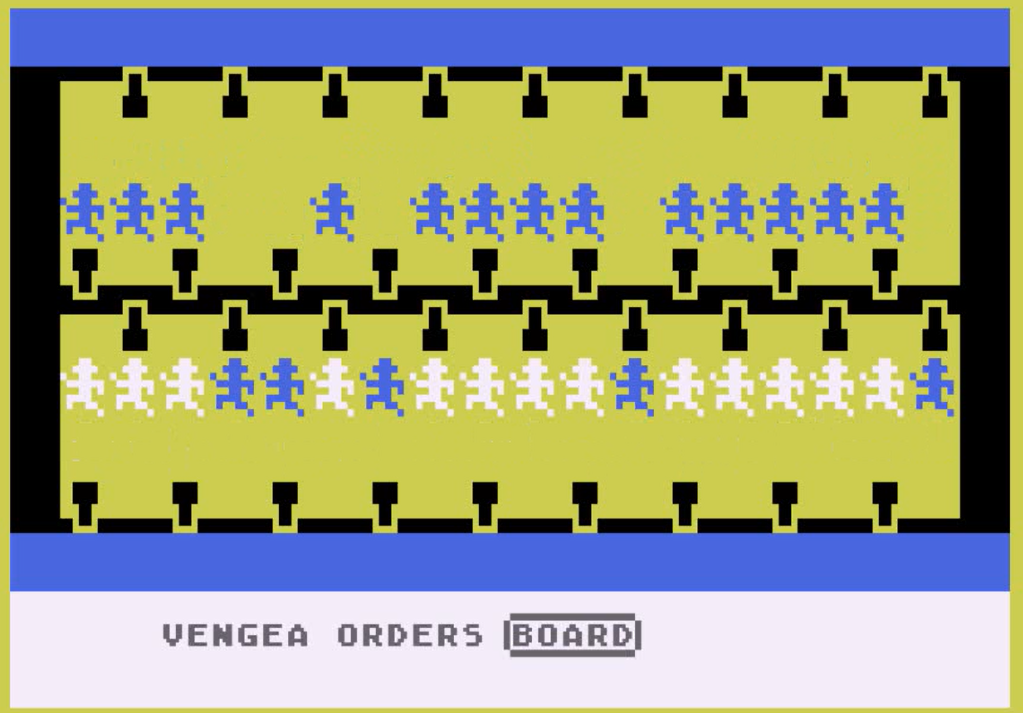
Contributing to the disaster, I realize that in the commotion before the boarding I forgot to transfer sailors from the guns to the deck (to board) and the tops (to inflict damage). I am doing it now, but too slowly, too late. This mistake guarantees my defeat!
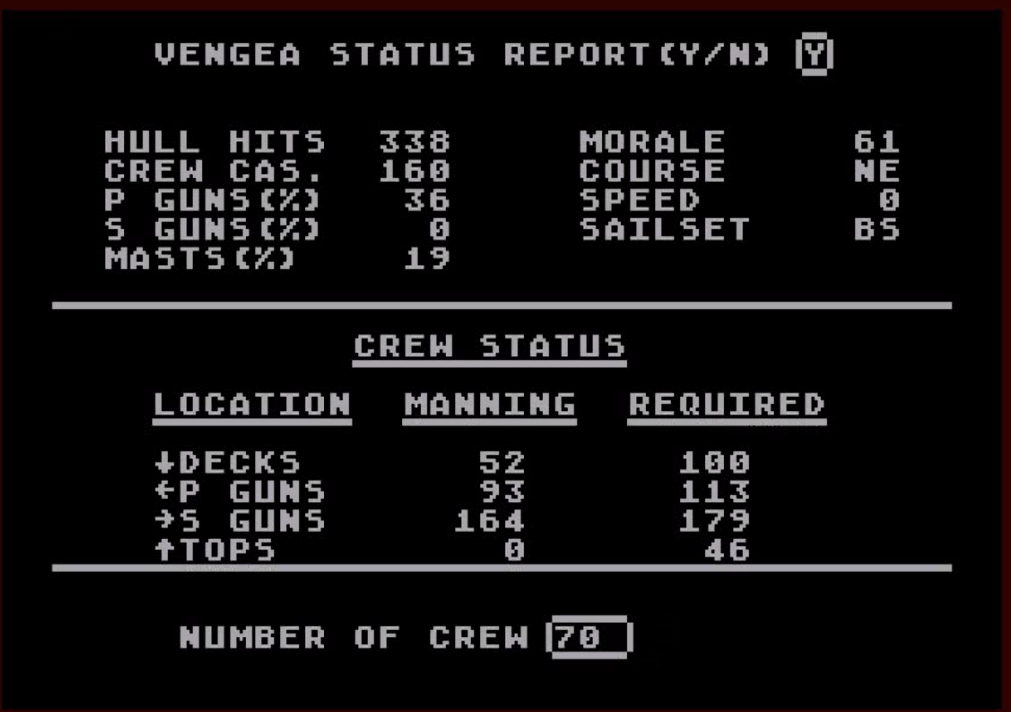
Two turns later, the Vengeance is overwhelmed.

And the French strike their colours. I haven’t avenged the Insurgente, instead I have added a ship to the Constellation‘s tally!
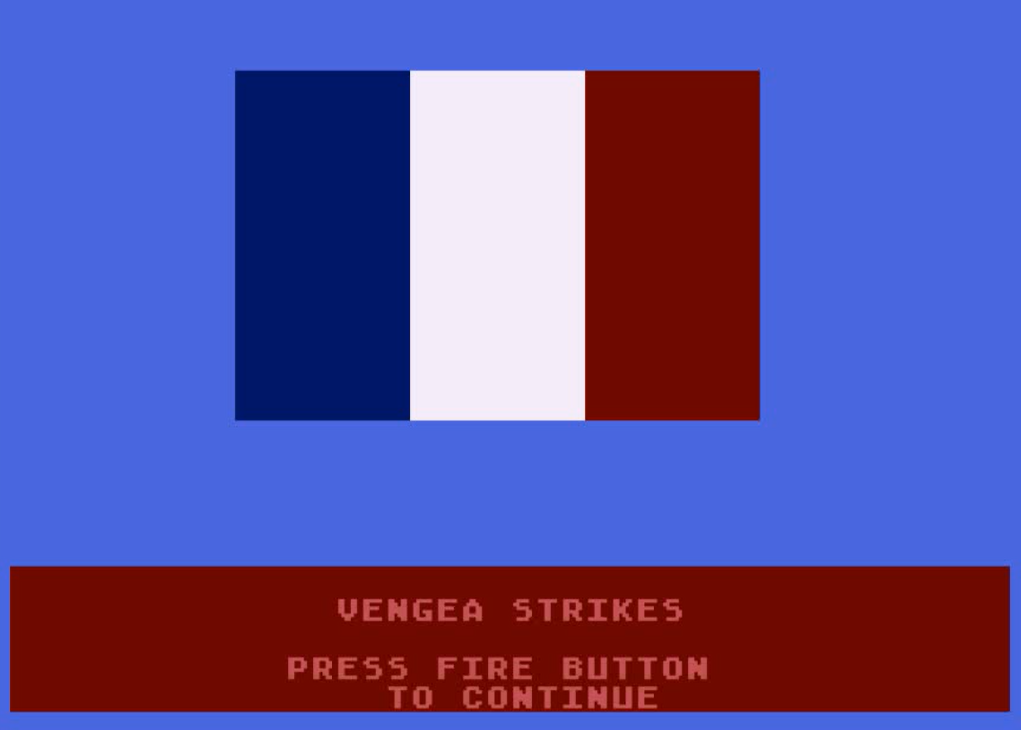
I reckon I could have won this battle if I had prepared for the boarding – the Constellation was herself unprepared as showed by the number of men on the deck in the first phase of the action. Oh, well, better luck in the next Age of Sails game!
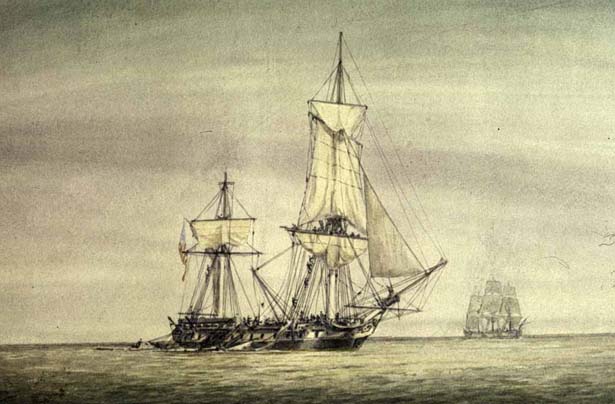
Historically, the Constellation lost her main mast, allowing the Vengeance to limp away in such a sorry state she had to eventually beach herself to avoid sinking.
Rating & Review
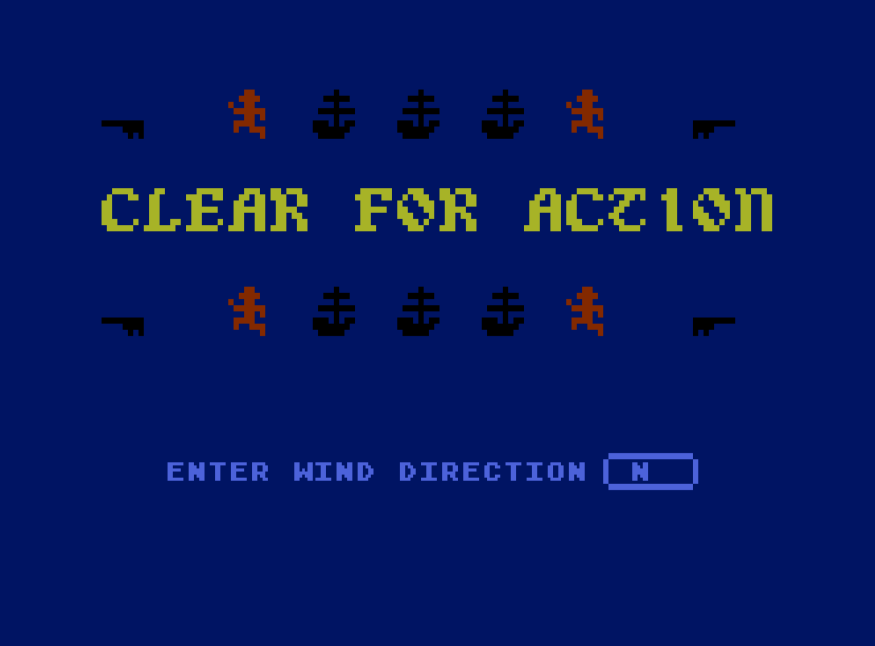
Clear for Action by Michael W. Stradley, published by Avalon Hill, USA
First release: October 1984 on Atari and TRS-80
Genre: Naval Tactics
Average duration of a campaign : 20 minutes for a solitaire battle
Total time played: 1 hour
Complexity: Average (2/5)
Rating: Obsolete
Ranking at the time of review: 88/144
Context – Avalon Hill games are always frustrating to cover as the (external) developers are most of the time unknown, and no one at their Microcomputer Games branch ever gave interviews, so we’re left with whatever context we can infer from the game and its manual. We are somewhat lucky today: designer/programmer Michael W. Stradley did not author any other game, but he left some designer notes in the Clear for Action manual.
Clear for Action was released around October 1984 on Atari 8-bits and TRS-80, but started more than 3 years earlier “as an early aid and referee for sailing miniatures” – effectively an automatic bookkeeper. One thing leading to another, Stradley realized he did not need the miniatures, and by integrating the map into the program Clear for Action became a full-fledged video game, albeit one complex and multiplayer only.
Stradley then playtested and streamlined his game; some of his decisions made perfect sense, but I feel he made a major blunder when he simplified movement: “another example of design trade-offs is the 45° turn increment. Realistically, the wooden sailing ships steered by a 16 point compass. The decision to limit the number of possible sailing points to 8 detracts from this aspect of realism. It was a tough trade-off. There were several minor reasons, but the single most important factor was the difficulty in translating intermediate points of sailing onto the position grid. It proved to be too tiring mentally on the players, especially when it came time to figure firing angles.” Overall, Stradley found that the result “does a very good job in some areas in a credible job in others“; it’s only then that he added an AI opponent of which he is very proud of.
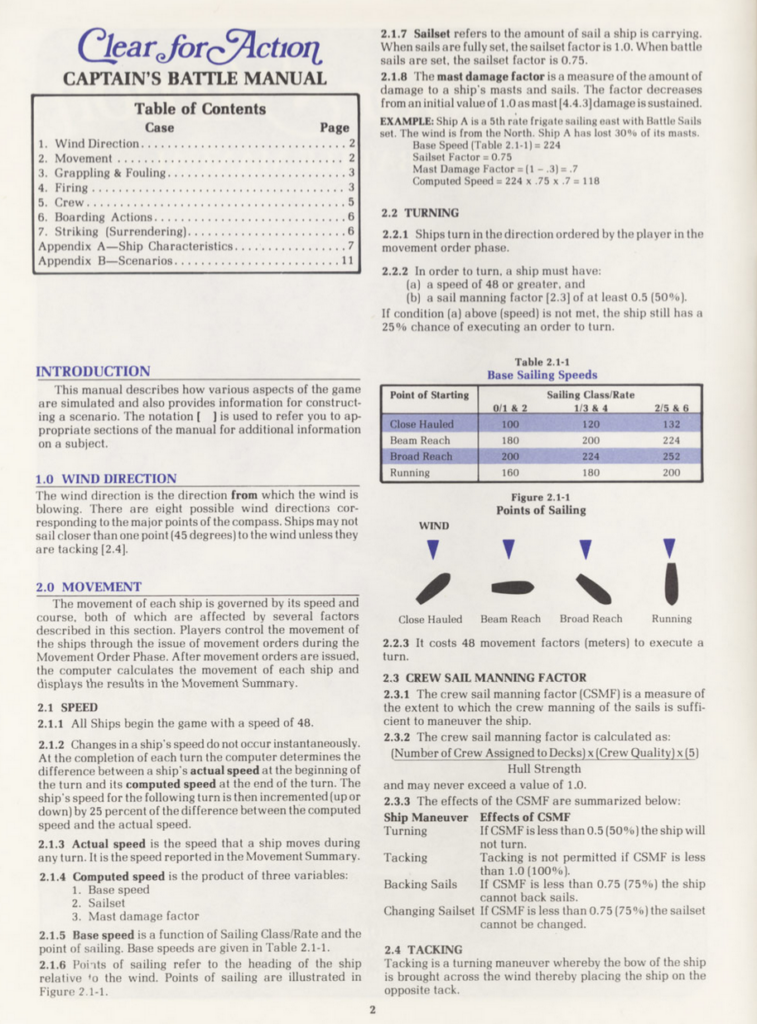
Traits – Even though Stradley evidently put a lot of love into his game, it is hard to understand why Avalon Hill accepted to publish it for $25-$30 in its state – either its management was trying to saturate the market as soon as possible with anything it could find, or was just incognizant of the competition. The theme and scale immediately invite comparison with SSI’s Broadsides, which had been released more than one year earlier on Atari, Apple II and (later) C64, and why would anyone need the slower Clear for Action, whose main screen was reminiscent of the antiquated Midway Campaign? Sure, Clear for Action is nominally more realistic than its peer, what with its special rules for tacking or backing the sail and its 3 types of shots. But then real-time adds a touch of realism of its own.
Of course, the worst flaw of Clear for Action compared to its SSI competitor is movement management. Broadsides had 360° of liberty and how fast you and your opponent turned played a role in your tactics, Clear for Action had none of that: ships can sail in only 8 directions and they all turn at a speed of 45°/turn. Every other turn I wanted to turn by less than 45° and I couldn’t, it was so frustrating.
I found Clear for Action superior to Broadsides in only one domain: boarding. This was not great in Clear for Action, but if you remember it was a disaster in Broadsides. Furthermore, I really appreciate that Clear for Action connects the sailing phase and the boarding phase by requiring you to allocate crewmen to the deck and tops before the boarding takes place. I did not show this feature in the AAR, but players may have difficult decisions to take between preparing for a boarding that may not be certain and keeping their guns crewed.
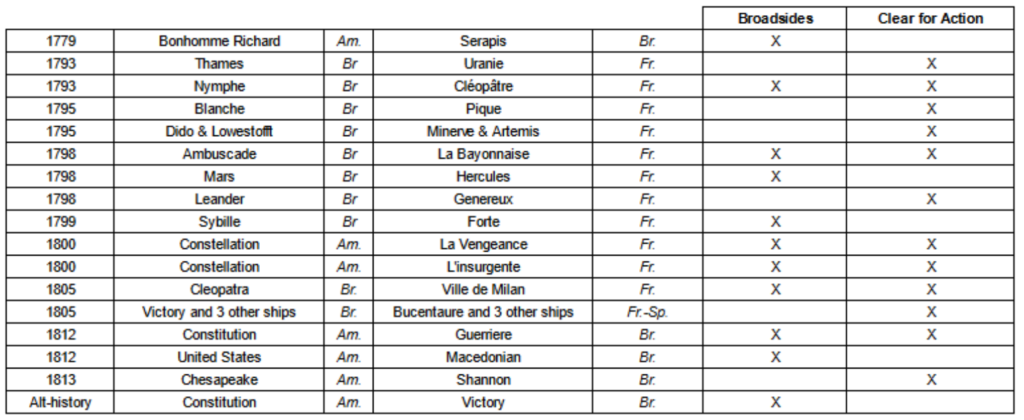
As a final note, Clear for Action missed an obvious opportunity to differentiate decisively from Broadsides. Unlike the latter, Clear for Action can manage up to 8 ships, a situation in which simplification like “only 8 directions” becomes a lot more bearable. But, incredibly, this feature is reserved for multiplayer – a situation that made me question Avalon Hill’s role as publisher above: they should have known that multi-ship solitaire battles would have been a Key Selling Point, and they should have known that without this, Clear for Action was never going to be more than low-cost Broadsides.
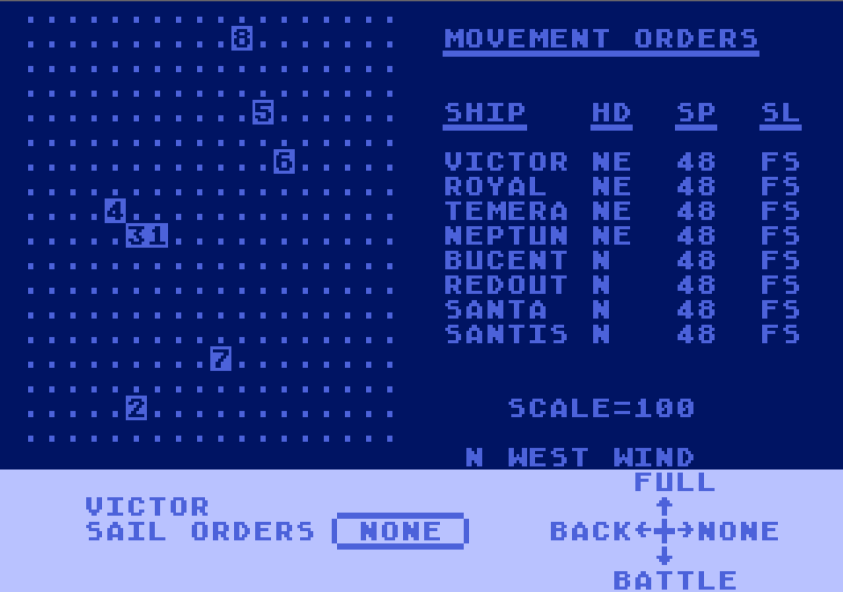
Did I make interesting decisions? Yes, occasionally.
Final Rating: Obsolete. Clear for Action could have been good with just a few changes, but as it is it does not elevate beyond its status of “turn-based Broadsides”.
Reception
I don’t have sales data , but as it was released one year after Broadsides without any specific ad, it is hard to believe that Clear for Action sold well. In addition to an unpaid advertorial in Computer Gaming World (Matthews Floyd’s “Clear for Action: The View from a Playtester“), I could only find 3 contemporary reviews, all positive:
- Nick Chrones for the Atari Computer Enthusiasts Newsletter highly recommends the “excellent” game: “It is one which can be played for many years and still be challenging.”,
- James Delson, writing for Family Computing in May 1985, compared it unfavourably to Broadsides as a multiplayer game (“the player going second has a clear advantage since he or she is able to see how the opponent intends to move“) but still concluded that “CFA was well-received by playtesters“
- Finally, Kim Nelson writing for MicroTimes in May 1985 found movement and battle resolution occasionally confusing, but noted that the game still “provided me and my friends with many hours of enjoyment“.
Later retrospectives, however, absolutely slaughtered the game. JL Miler for Computer Play compares it to Broadsides in 1989, and of course finds it wanting, while Evan Brooks gives it one-and-half-stars in 1990 (Broadsides received 5!), and comments: “Marred by poor graphics, poor interface and marginal entertainment value.” This time, I am with him.